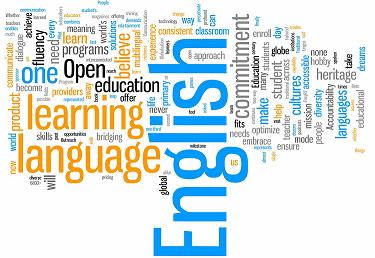Press “1” for English
I recently viewed an image that someone shared on Facebook that really got me thinking. I probably have changed my mind some over the years as I wasn’t the most tolerant to people here in the United States that didn’t speak English.
The image depicted a woman holding a phone receiver away from her face and looking outraged, with red text superimposed on it that said, “IM IN AMERICA, WHY DO I HAVE TO PRESS 1 FOR ENGLISH!” When I looked at the image’s original page, it was full of other images lamenting the destruction of American values.
While I could write forever on what the incorrect use of punctuation and obnoxious style will lead me to believe about the intellect of whoever holds this viewpoint, I’ll save that for another day. I could also write a piece reminding readers that the United States of America does not have and has never had an official national language. And that even if it did, democratic countries with a national language do not require all citizens to speak that language.
Instead, I’m going to focus on how difficult it is to simply “learn English.”
While experts love to squabble about which languages are the most difficult to learn, English is generally regarded as one of the most difficult. English is a Germanic language with significant influences from Latin, French and Greek. This means that unlike French, German or Mandarin, where letters are normally pronounced the same way in every word, pronunciation in English is a crapshoot.
For instance, take the phrase “through tough thorough thought, though.” Much of English pronunciation is memorization, and luckily for native English speakers, we memorized common words when we were young. English language learners have to learn the finicky rules of English pronunciation, then quickly learn all the exceptions to those rules.
For someone who does not speak English at home, constructions like adding an “e” to change the sound of an “o” can be the epitome of confusion. For proof of this, think about the difference in pronunciation between “some,” “one,” “home,” and “epitome.”
Many aspects of our grammar present difficulties, too. English syntax critically important, and yet often the distinction between two different sentences is that the order of the correct one “just sounds right.” Just as I, someone with an untrained musical ear, am unable to immediately harmonize with a note someone is playing, an English learner will struggle to tell you why my ear is an “untrained musical ear” rather than a “musical untrained ear.”
English also has these ridiculous things called “verbal phrases,” which are two-word phrases that change the meaning of a verb, like “ask out,” or “ask around.” Verbal phrases are difficult enough on their own for an English learner. But imagine trying to breakdown your thought process so you can speak properly during a stressful situation, like when you have a broken down car, are going through a break up or have a nasty acne break out. It’s enough for anyone to have a mental breakdown.
Learning another language is an extremely difficult task that requires you to change the way your brain processes and produces information. Foreign language professors will tell you that in order to learn a new language, you have to make mistakes. Mistakes are how language learners reach beyond the basics and learn what exactly they are doing wrong so they can correct it. But when English learners in the United States make mistakes, they are often assumed to be stupid, made fun of or told to try harder. Many ESL learners, discouraged by all this, are driven into silence.
Pressing “1” for English when calling somewhere is not a sign of the destruction of American values. Rather, it is an extraordinary example of many of the values on which America was founded and is supposed to embody — inclusiveness, aide to the underdog and equal opportunity. Most phone calls that give a language option are phone calls that require spoken clarity and total understanding, like calls to your bank or electric company. Allowing people who struggle (understandably so) with English, or are at a stage in learning where they need to make mistakes, to conduct their business in the language they feel most comfortable is not unAmerican. It’s one of the most American things you can do.
Don’t get upset with Press “1” for English but embrace the diversity of this great nation.





